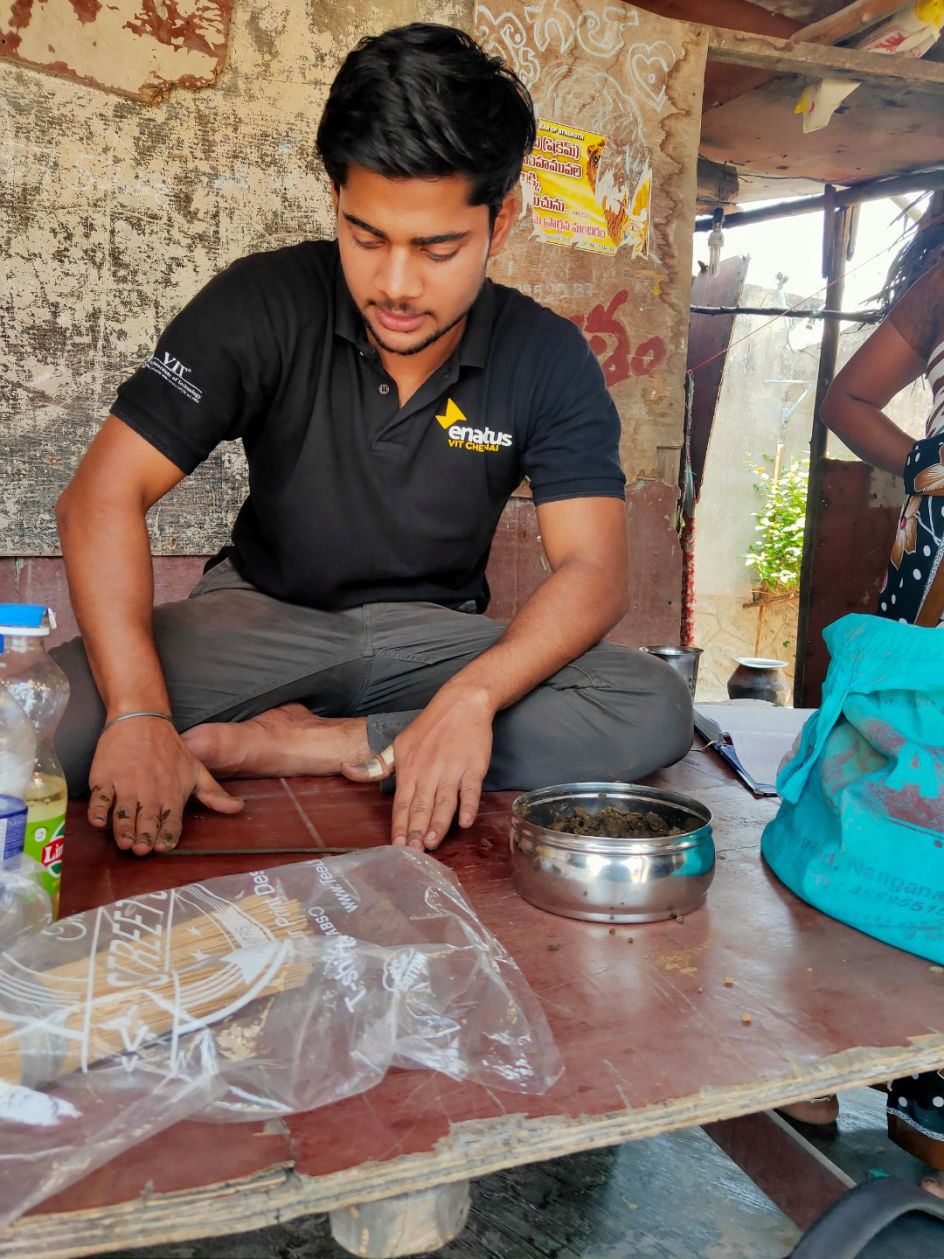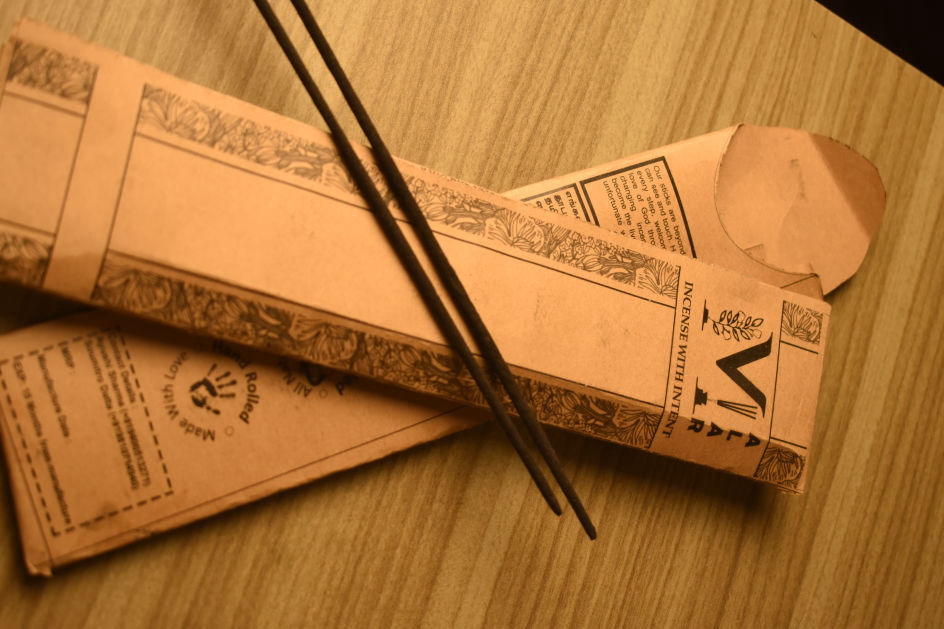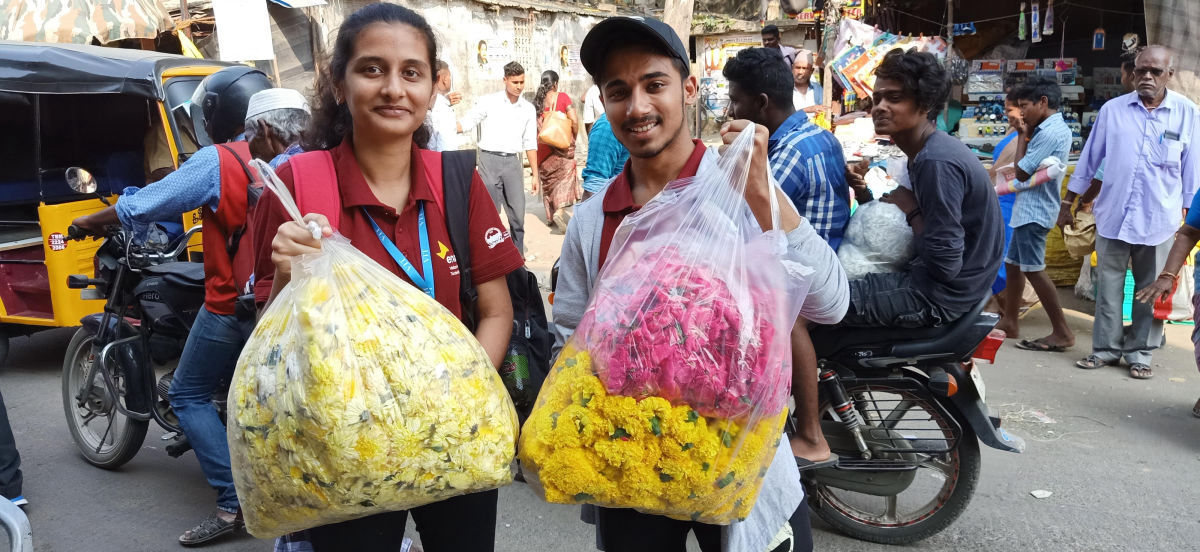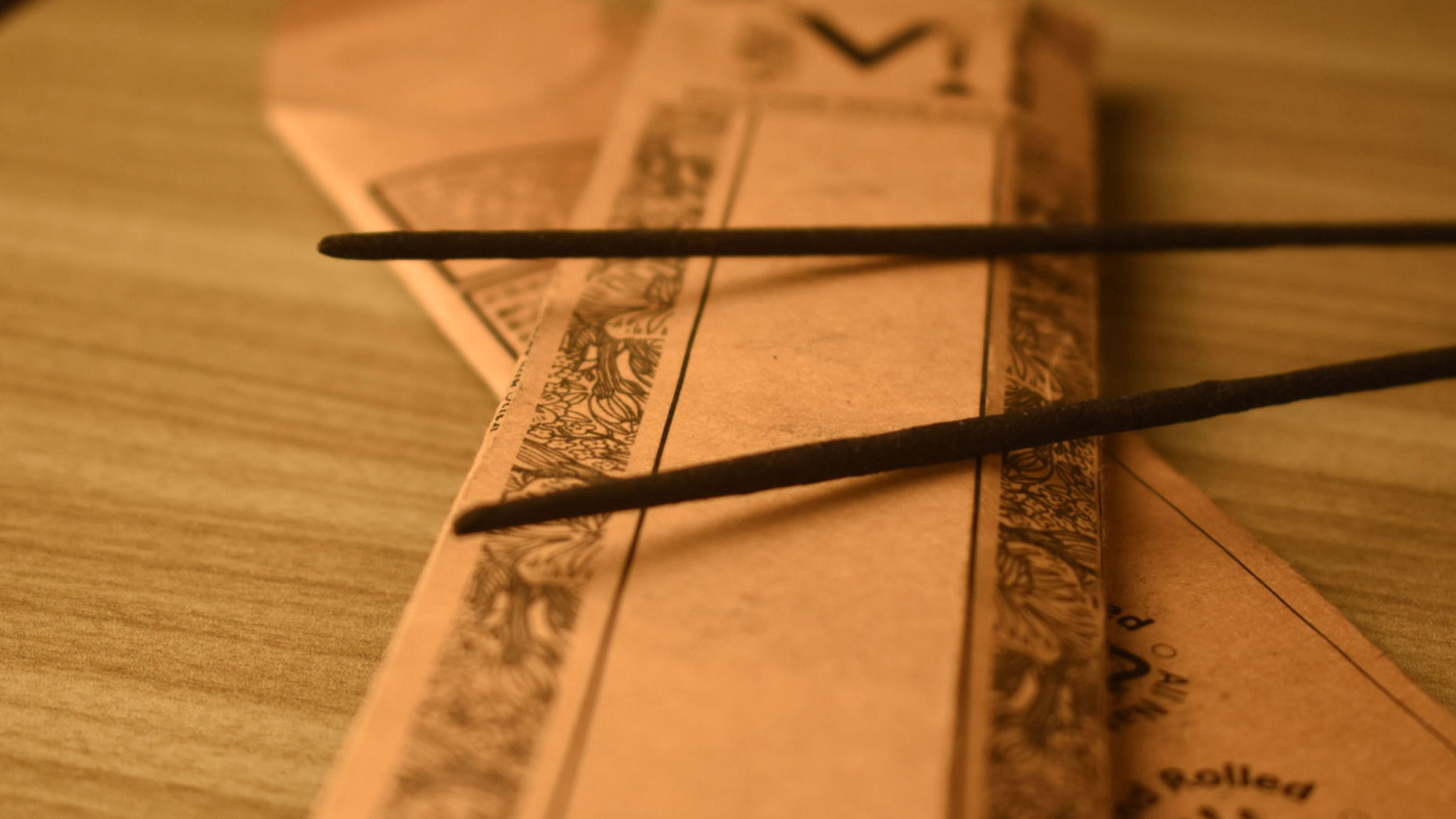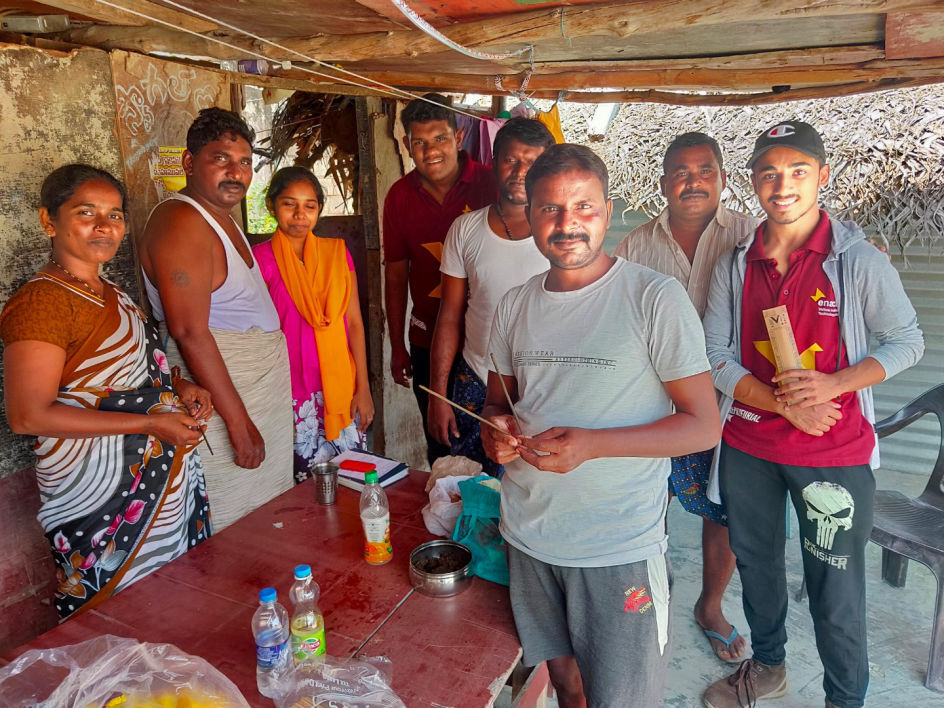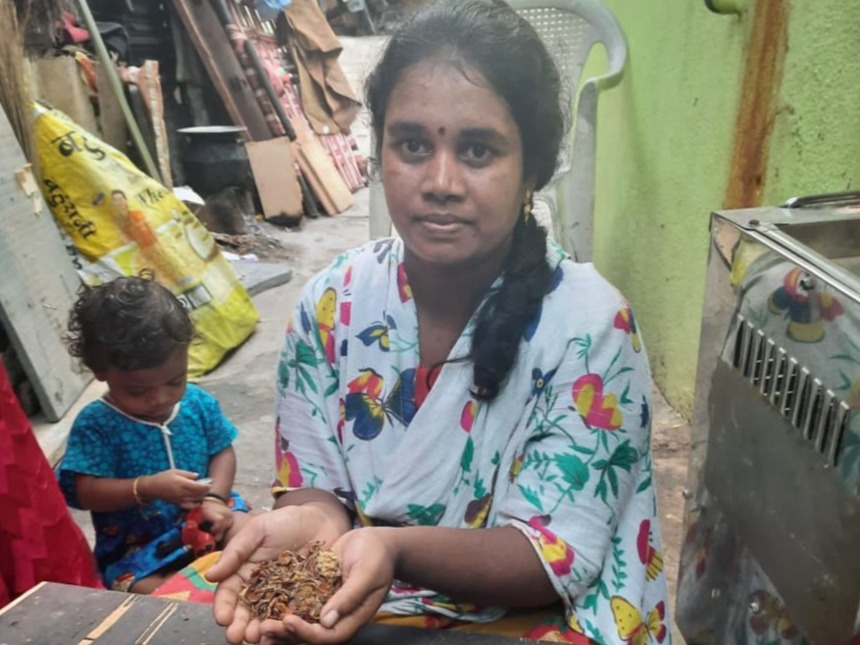
Our Workforce
Though the project could have acted as a source
of employment for every stratum of society. We
decide to fulfill multiple UN goals. Hence, we
decided to employ Tirusulam women who were
earlier homemakers. With our entrepreneurial
model Malar, the women slum-dwellers, especially
those who were denied work, received an
opportunity to earn a living for themselves by
making enough profits and taking care of their
household simultaneously. In this process, they
learned the benefits of Eco-friendly incense
sticks. A skill training program was launched to
teach them how incense sticks are manufactured
and packed.
Our incense has empowered over 22
marginalized women by upskilling them and
offering them dignified jobs. Through Malar we
have sparked passion in these women to help them
pursue their dreams and inspire others of the
same fate. That is the Intent of our
Incense

